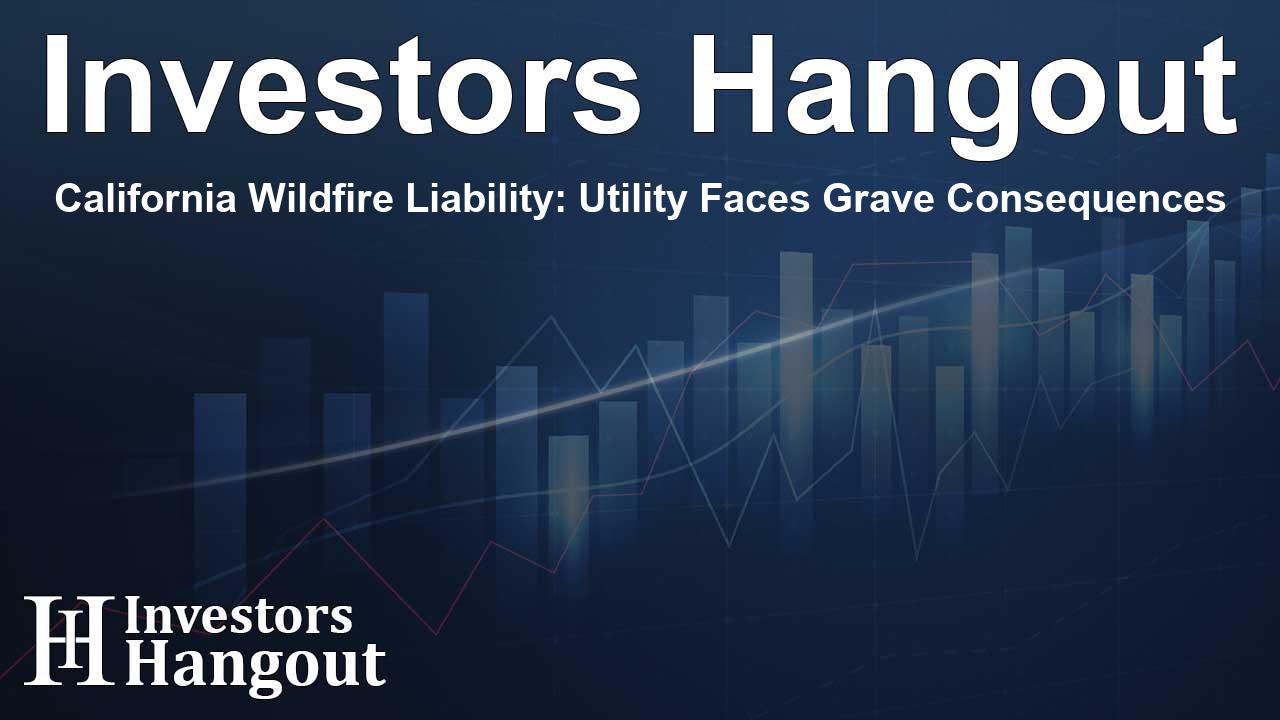California Wildfire Liability: Utility Faces Grave Consequences

California Wildfires and Utility Liability
California's recent wildfires have not only caused significant destruction but have also raised critical questions about liability for power utilities. The fires, particularly the Eaton and Palisades fires, are being considered some of the most costly in U.S. history, with the potential for the utility company Southern California Edison being held liable for damages even if they did not act negligently.
The Legal Framework in California
One of the crucial legal doctrines at play is known as "inverse condemnation," which traditionally allowed property owners to seek compensation from the government when their land was effectively taken for public use. However, California courts have expanded this doctrine to hold utility companies accountable for damages caused by their equipment, extending this liability even in the absence of negligence. Legal experts emphasize that this makes California unique, as most jurisdictions do not apply such principles to private utilities.
Understanding Inverse Condemnation
Inverse condemnation holds that if power lines are deemed a substantial cause of a fire, the utility can be liable for damages. This means victims can seek compensation for losses sustained from the wildfires regardless of whether the utility followed regulatory protocols. Victor G. Farber, a law professor, clarifies that these cases only require proof of the connections between utility infrastructures and the damage, negating the need to demonstrate poor maintenance or negligence.
Consequences for Southern California Edison
In the wake of the devastating fires, numerous lawsuits have emerged against Southern California Edison. These cases argue that the company’s high-voltage transmission lines were the actual source of ignition for the wildfires, fueled by precarious weather conditions. The plaintiffs claim to have observed flames near the lines, linking them directly to the damage they sustained. With the stakes that high, the potential costs to the utility could escalate into tens of billions of dollars.
Financial Implications of the Wildfires
California lawmakers have acted quickly in response to the crisis, establishing a wildfire insurance fund of $21 billion. This fund is designed to alleviate the financial burden on Southern California Edison, promising to ensure that the company can cover its liabilities while supporting wildfire victims. However, the company’s liability will itself be capped at approximately $3.9 billion, which leads to potential shortfalls for many victims.
Future of Wildfire Litigation
The ongoing litigation surrounding these wildfires may take years to reach resolutions, as plaintiffs seek compensation for lost wages, property rebuilding, and irreplaceable losses. With legal strategies focusing on both claims of negligence and inverse condemnation, the landscape of wildfire liability will continue to be scrutinized. Attorney Mikal Watts remarks that the price tag associated with these wildfires may surpass any previous estimates, indicating a monumental change in how utilities are litigated in the wake of such disasters.
Community Response
As the lawsuits progress, Southern California Edison remains committed to investigating the claims and supporting affected communities. Company representatives have expressed determination to restore power and mitigate the impacts of future wildfires through evolved protocols and safety measures. The implications of these wildfires will shape policies surrounding utility regulation and consumer protection for years to come.
Frequently Asked Questions
What is inverse condemnation?
Inverse condemnation is a legal doctrine that holds utility companies liable for damages caused by their infrastructure, even without negligence.
What are the recent wildfires in California?
The Eaton and Palisades fires are among the most significant recent fires in California, leading to substantial property damage and loss of life.
How much is California's wildfire insurance fund?
The state has established a wildfire insurance fund amounting to $21 billion to assist utilities and wildfire victims.
What claims are being made against Southern California Edison?
Victims are making claims based on inverse condemnation and alleged negligence regarding the maintenance of transmission lines.
What are the expected outcomes of these lawsuits?
Outcomes may vary, but some predictions indicate that the lawsuits could lead to unprecedented financial liabilities for the utility companies involved.
About The Author
Contact Thomas Cooper privately here. Or send an email with ATTN: Thomas Cooper as the subject to contact@investorshangout.com.
About Investors Hangout
Investors Hangout is a leading online stock forum for financial discussion and learning, offering a wide range of free tools and resources. It draws in traders of all levels, who exchange market knowledge, investigate trading tactics, and keep an eye on industry developments in real time. Featuring financial articles, stock message boards, quotes, charts, company profiles, and live news updates. Through cooperative learning and a wealth of informational resources, it helps users from novices creating their first portfolios to experts honing their techniques. Join Investors Hangout today: https://investorshangout.com/
The content of this article is based on factual, publicly available information and does not represent legal, financial, or investment advice. Investors Hangout does not offer financial advice, and the author is not a licensed financial advisor. Consult a qualified advisor before making any financial or investment decisions based on this article. This article should not be considered advice to purchase, sell, or hold any securities or other investments. If any of the material provided here is inaccurate, please contact us for corrections.
